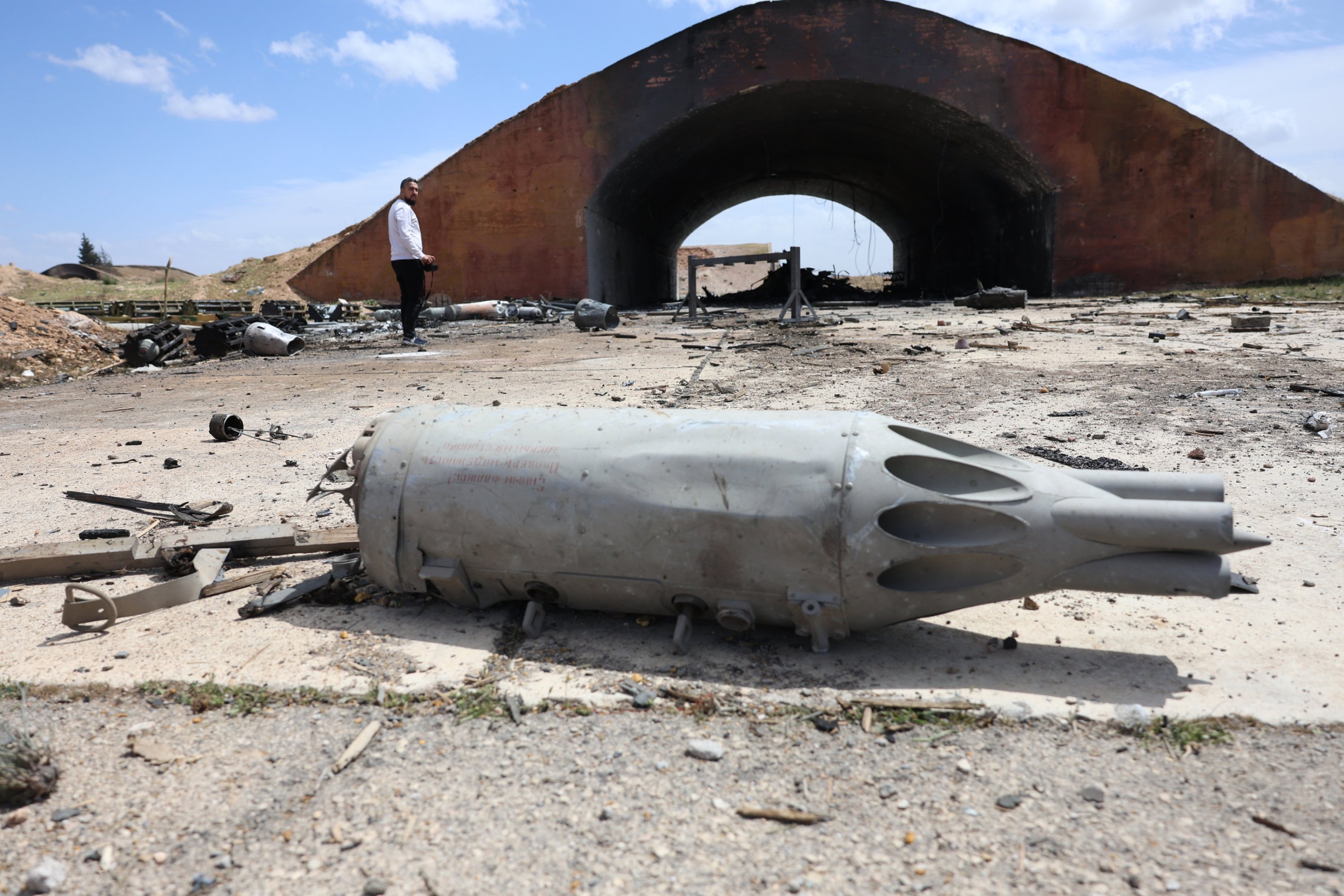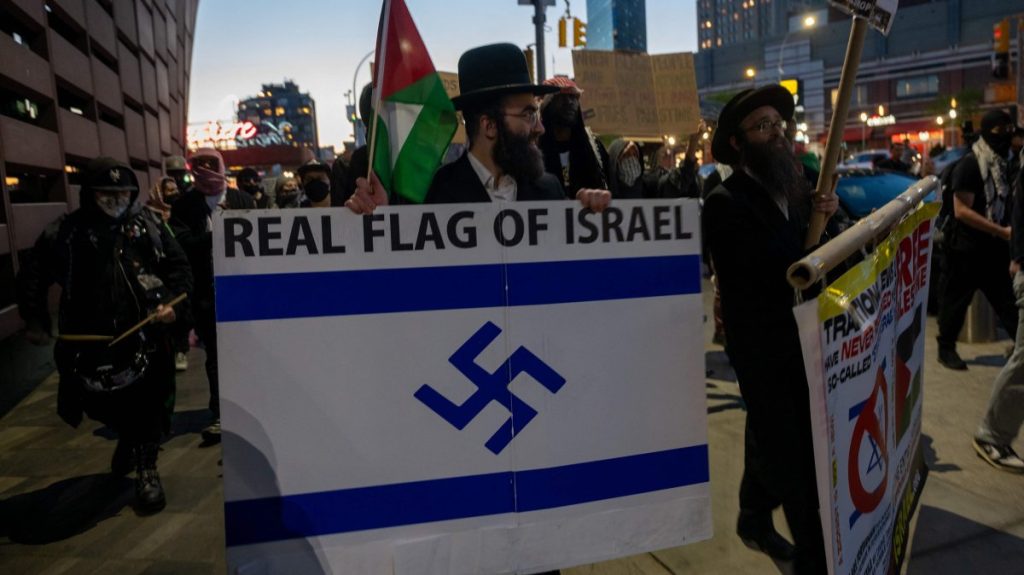In recent days, we have been witnessing an intensive campaign by Israel to strike Iran or at least to destroy its nuclear facilities. In fact, Israel’s attempts in this direction are not new for those who follow the region. However, especially U.S. President Donald Trump’s warm messages about the possibility of striking Iran during the campaign period and his inclusion of names in his Cabinet, who advocate for striking Iran, have encouraged Israel even more.
Israel pursues a similar policy not only against Iran but also against all elements of the Axis of Resistance, especially after Oct. 7, 2023. Netanyahu even explained Israel’s mission in this process as “we will redesign the Middle East.”
In other words, it is understood that Israel, which has seized the appropriate conjuncture, is trying to realise the regional security architecture that it has been planning for years, and in this context, not only Gaza and the West Bank, but also Lebanon, Syria and Iran are on the target list. As if this were not enough, Israel, which is seen to have increased its threatening language toward Türkiye after the revolution in Syria, wants to limit or neutralize every state or actor in the region that it sees as contrary to its plans.
Israel has both gained legitimacy in the eyes of the West and received excessive support to continue this inhumane war due to the perception of operations after Oct. 7. Israel, which wants to use this support to consolidate its qualified military superiority in the region, is trying to neutralize all actors that may pose a threat to it today or in the future.
Therefore, it would be helpful to explain what Israel’s policy of a “qualitative military edge” entails, what measures are being taken to maintain this superiority, and how this Israeli policy is shaping the security architecture of the Middle East.
Qualitative military edge
Qualitative military edge (QME) is defined as “the ability to meet and defeat a credible conventional military threat from any individual state or coalition of potential states or non-state actors with minimum damage and casualties through the use of sufficiently superior military means, including weapons, command, control, communications, intelligence, surveillance and reconnaissance capabilities, superior in technical characteristics to those of any other individual or coalition of potential states or non-state actors.”
For Israel, the QME is “the fact that Israel, which was surrounded by hostile Arab states at the time of its establishment, has new and technological weapons and a strong army, which are not available in the countries of the region, to remain in the region and to consolidate its security and thus, on the one hand, it has an important deterrent and on the other hand, it eliminates the possibility of retaliation by responding to any attacks that may be directed against it with retaliation.”
The most important factor of Israel’s QME has undoubtedly been its nuclear weapons since the 1960s. Although not officially recognized, the fact that Israel is the first and only nuclear-armed country in the Middle East has given it an undeniable qualitative military superiority.
Another factor in this regard is the continuous development of new weapons and methods to achieve a technological power that enemies cannot resist. Suppose Israel cannot produce the most technologically advanced weapons on its own. In that case, it obtains them from its closest ally, the U.S., and to maintain its qualitative military superiority, it also ensures that the U.S. does not sell these weapons to other countries in the region. The most obvious example of this is Israel’s lobbying to prevent the sale of F-35s, the fifth-generation fighter aircraft of U.S. origin, to any country in the region, including Türkiye.
This is why Tel Aviv wants to prevent other countries in the region from possessing more technological weapons than itself, leaving them unable to counter Israel’s attacks and thereby shaping the security architecture of the Middle East as it wishes.
Being the only nuclear power
Israel’s possession of nuclear weapons was revealed in 1986 via the confessions of Mordechai Vanunu, a former employee of the Dimona nuclear power plant. Satellite photographs taken in the following years confirmed the existence of nuclear weapons, making Israel the only nuclear power in the Middle East. In fact, Israel’s refusal to join the Nuclear Non-Proliferation Treaty (NPT), which came into force in 1970, has been interpreted as an unwillingness to be subject to restrictions and possible sanctions in this regard.
Israel struck Iraq’s Osirak nuclear facility in 1981 and Syria’s al-Kibar nuclear facility in 2007, which were interpreted as a sign that no other state in the region would be allowed to possess nuclear weapons. Similarly, since the revelation of Iran’s nuclear activities in 2003, Israel has attacked Iran’s nuclear facilities using various methods. It has lobbied the international community, particularly the U.S., to impose sanctions on Iran.
Israel’s obsession with this issue has reached such a level that it has even tried to prevent the Akkuyu nuclear project initiated by Türkiye, with various excuses. As if this was not enough, Saudi Arabia’s intention to have nuclear energy, which was negotiating with the U.S. to build a nuclear power plant within the framework of the Abraham Accords announced in 2020, was perceived as a threat and pressure was put on the U.S. administration through the Jewish lobby to abandon this decision.
No air power superior to Israel
Türkiye was forced to buy S-400 systems from Russia because it could not obtain the Patriot air defense systems it had requested from the U.S. to eliminate the threats it felt due to the civil war in Syria. Later, it was understood that Israel’s desire to maintain its qualitative military superiority was behind the U.S.’ exclusion of Türkiye from the F-35 project and the imposition of Countering America’s Adversaries Through Sanctions Act (CAATSA) sanctions on a NATO member for the first time. Although Israel is not a project partner like Türkiye, it has become the largest and most capable air force in the region by purchasing F-35 aircraft from the U.S.
Since Türkiye-Israel relations have not been as good as they were in the 1990s, Türkiye has distanced itself from Israel, especially after the Mavi Marmara incident. In response, Israel prevented Ankara from acquiring the F-35 aircraft, both to punish Türkiye and to maintain its qualitative military superiority. Unfortunately, not only did the U.S. officials of the time dismiss Türkiye from the program by believing the baseless lies put forward by Israel that the S-400s would intercept the frequencies of the F-35s, but they also damaged the spirit of the alliance by imposing some sanctions under CAATSA.
The F-35 aircraft requested by the UAE, which normalized relations with Israel under the framework of the Abraham Accords and established close ties with Israel since then, were also blocked by Israel. It was revealed that Israel advised the U.S. administration not to sell the F-35s to the UAE.
Similarly, Israel is behind the fact that Lebanon and Syria do not have air defense systems capable of preventing Israeli airstrikes. Israel has prevented Lebanon and Syria from acquiring such systems through secret agreements, sometimes with the U.S. and European countries, or with Russia. It has ensured that they remain defenseless against Israeli attacks.

Antagonizing everyone
As can be understood from the above examples, Israel does not want any country in the region to be more powerful than it is, per its policy of qualitative military superiority. Although it possesses nuclear weapons, it cannot tolerate others building power plants for nuclear energy, let alone nuclear weapons.
Israel prefers to procure the platforms that it cannot afford to produce from the U.S., but tries to prevent other countries in the region from having the same platforms.
As a result, Israel’s claim to a qualitative military edge has also determined the security architecture of the Middle East region. While Israel has been equipped with all kinds of modern weapon systems, other countries in the region have only had access to older weapons or weapons that do not pose a threat to Israel. The only exception is Türkiye, which has recently made a breakthrough in its defense industry.
Türkiye has been relatively freed from its dependence on the West thanks to its domestic and national defense industry products. These developments have worried Israel, especially because of the military bases that have been rumored in recent days to be set up in Syria. Such a move by Ankara will disrupt all of Israel’s regional plans and cause it to lose the comfort it has had so far.


